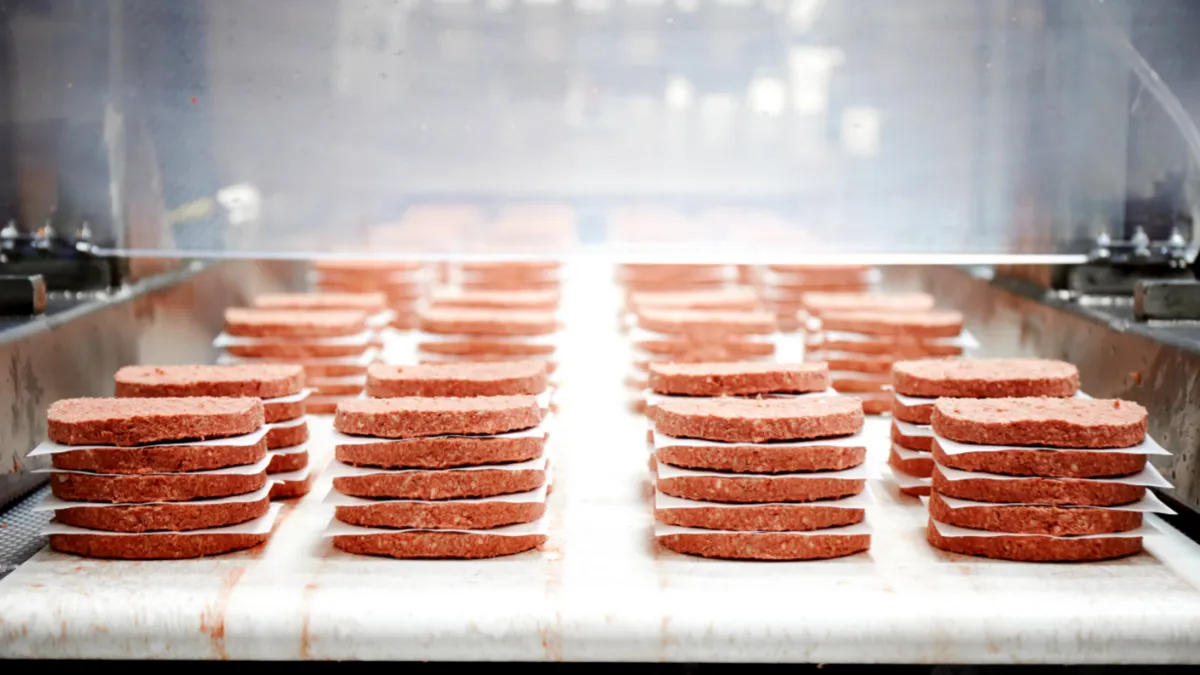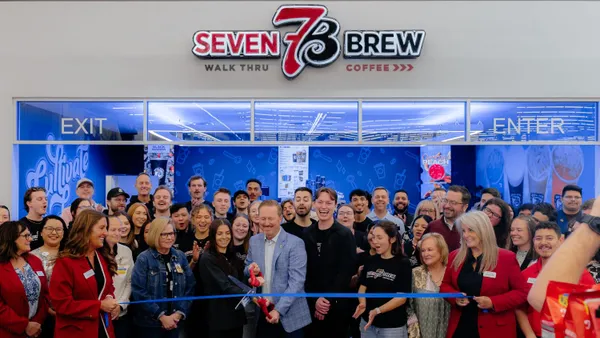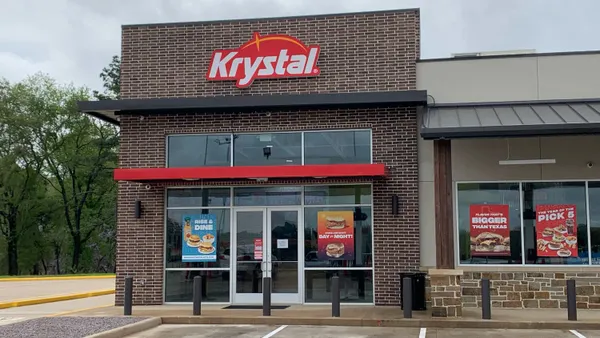Dive Brief:
- Plant-based burger maker Impossible Foods notified its distributors this week that it's no longer facing a product shortage, reports CNN Business.
- Some restaurants will need to reorder through their distributors and it may still take some time before these alternative-meat patties are back on menus, Impossible Foods President Dennis Woodside told CNN Business.
- Since March, Impossible Foods tripled its production, creating a record amount of supply in June, which is expected to be broken in July. It also hired more employees for its Oakland, California, facility, and started producing the plant-based meat substitute in five-pound bricks instead of patties. It plans to announce a new partnership with a manufacturing operator later this year, but cannot guarantee that there won't be more shortages if demand surges again.
Dive Insight:
Running short on product is never good for business, but it could also signal to some potential buyers that plant-based burgers are a hot commodity that they ought to be adding to their menus, too. Impossible Foods' shortage preceded a $300 million funding round, likely giving some restaurants and supportive consumers hope that the shortage was just a hitch that any startup could have faced. While the shortage hit independent operators the hardest, QSR chains like White Castle and Red Robin even reported shortages of the patties.
But restaurants have their own competition to stave off and some of them weren't willing to wait for Impossible to get its act together, sending them calling on rival competitor Beyond Meat, reports Eater. And for some of the independent restaurants that helped put Impossible’s product on the map, Impossible seemed like it may be getting too big and too greedy, especially since this shortage happened during the start of its partnership with Burger King.
Considering that half of U.S. consumers order burgers at least once a week, Impossible Foods would be wise to figure out how to prevent another shortage in the future, especially with its closest competitor already having a plan in place to deal with shortages. Beyond Foods also experienced shortages in 2017 and 2018 at A&W locations in Canada serving its Beyond Burger, according to Business Insider, requiring it to rebuild its supply chain, open new facilities and identify new partnerships. The company, which uses pea protein instead of soy protein, recently had a blockbuster IPO, reaching market capitalization of $3.9 billion by the end of its first day of trading. But in its prospectus it identified a number of risk factors related to production, such as a lack of co-manufacturers and a limited number of raw materials suppliers, that could result in a similar shortage.
Impossible Foods' forthcoming manufacturing partnership could be promising, especially since it will open up the opportunity to produce plant-based fish products. Considering the complexities behind producing its plant-based product, the company is likely concerned about product consistency and quality. There's also something slightly unappealing about envisioning a mealy burger substitute in a five-pound brick, which means that restaurants may have to shape the substance into patties in-house.
Either way, shortages may not be a problem for anyone if the plant-based buzz is destined to fizzle. Recent research that suggests most burger-loving Americans are overwhelmingly still ordering beef at QSRs. Although vegans and vegetarians are sure to drive continued momentum for meatless menu items, it's unclear whether consumers are just momentarily curious about plant-based foods or whether they could seriously make a long-term swap and forgo their carnivorous ways.














